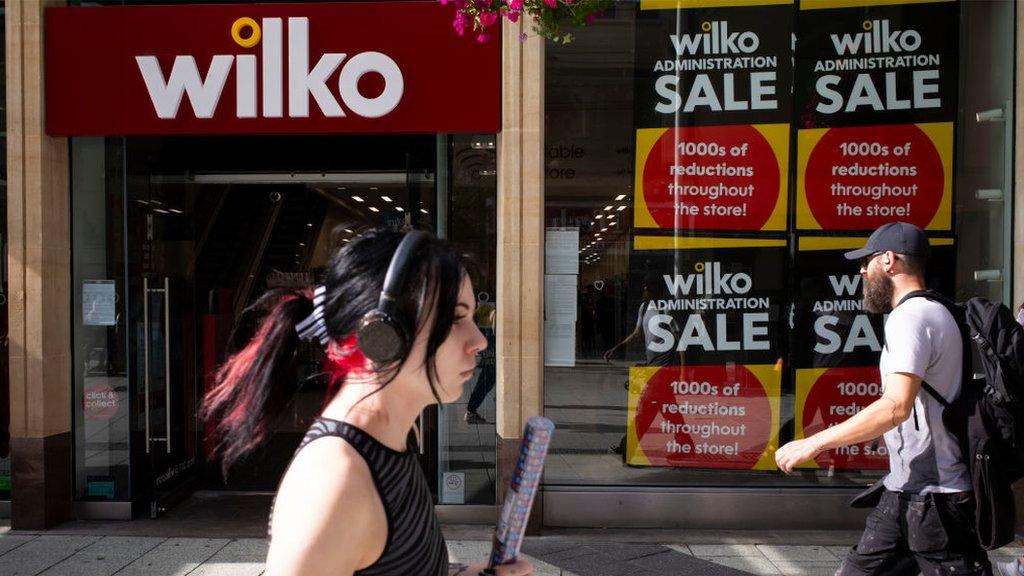Wilko: What does the closure of the chain mean for Lowestoft?
- Published
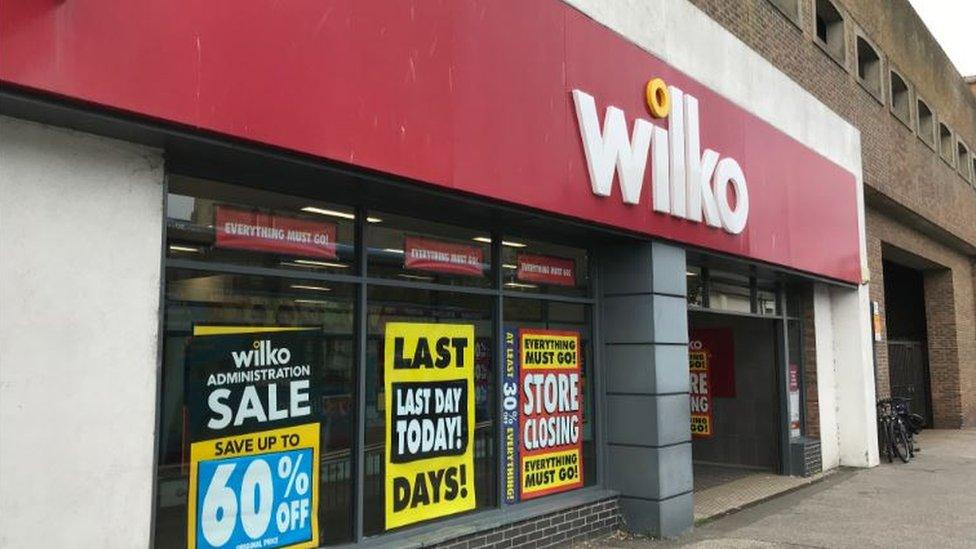
The Wilko store in Lowestoft is located just off the town's High Street
Budget retail chain Wilko is starting to shut shops across the UK after a rescue deal collapsed. Among the first to close is in Lowestoft, Suffolk. What does it mean for the town's High Street?

'I'm gutted - I only shop in town'
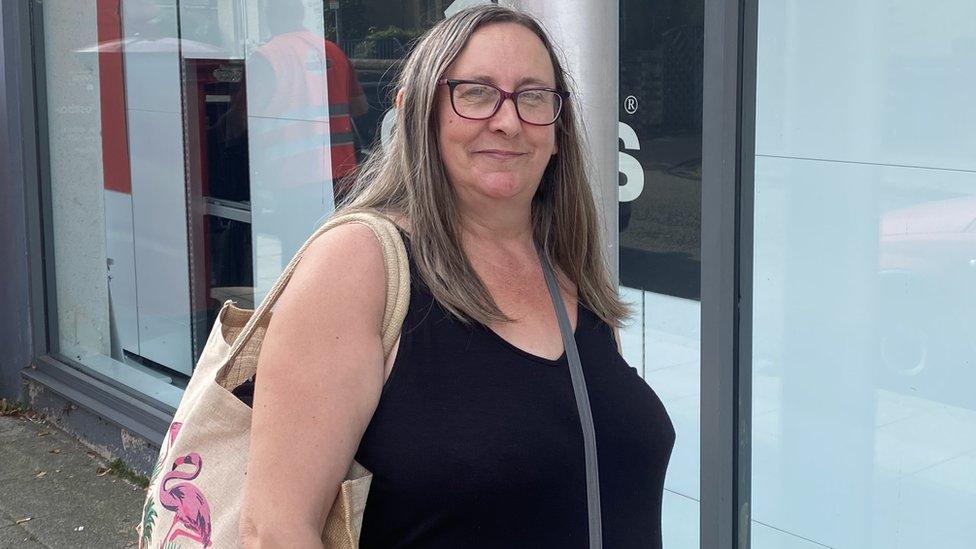
Samantha White has lived in Lowestoft all of her life and says she fears for the long-term survival of its High Street
Wilko's store in Gordon Road, just off the main shopping thoroughfare in the seaside town of Lowestoft, will be one of 24 shops across the country to close by the end of the day.
It comes after the rescue bid to save the discount chain broke down after it fell into administration in August.
The company, founded in 1930, blossomed into one of the country's fastest-growing retailers by the 1990s.
But now about 12,500 staff are likely to lose their jobs and 400 of the chain's shops are due to close by October - with Wilko yet another well-established brand to disappear from the shopping landscape.
Like many other towns, Lowestoft has seen a series of big names depart its High Street in recent years. It was once home to brands like Woolworths, BHS and locally based department store Chadds.
For full-time carer Samantha White, the demise of Wilko signals another death knell for her beloved High Street.
"I'm gutted to be honest because I only shop in town," says the 49-year-old. "I don't do the retail parks or online shopping hardly ever - I go in there every week."
Among the store's attractions for Ms White are its "good deals" and "lovely" staff but she also appreciates why it is time for the shop to close its doors for good.
"I think with the cost of living and the rents being so high, they can't really afford it," she says. "I just think it's such a shame - it's another step to there being no town.
"Retail parks and the internet are killing the High Street."
Despite her options narrowing, Ms White says she always tries to use local shops as much as possible and vows that online shopping will remain a "last resort".

'The High Street is dying - it's a shame for everyone'
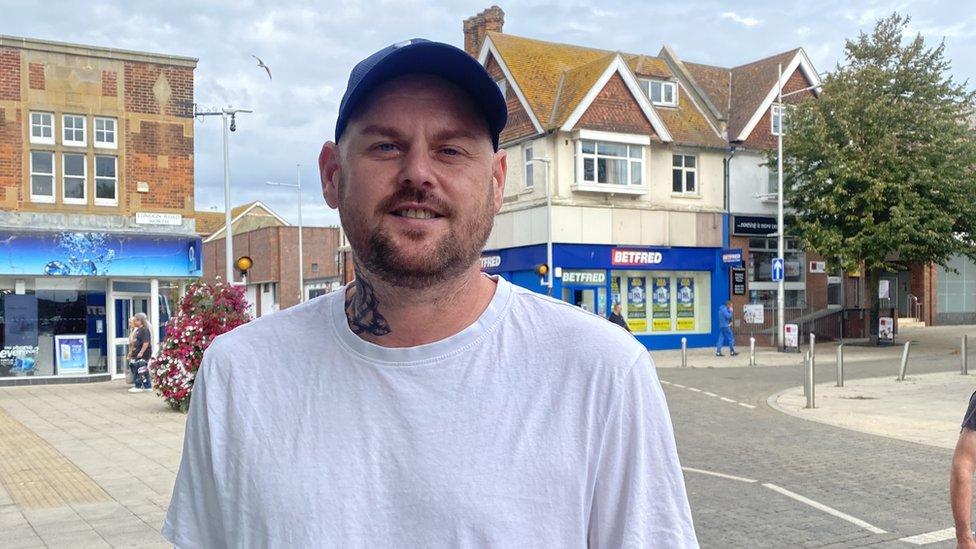
Former Wilko employee Warren Cooper says the closure of the Lowestoft branch is the end of an era for both him and the town
Wilko went into administration after struggling with losses and fierce competition from other discount chains, typically located on out-of-town retail parks.
While music retailer HMV had been trying to buy at least 100 Wilko shops, the deal collapsed due to rising costs.
Employees in Lowestoft did not want to speak to the BBC about their store closing but could be seen trying to boost their mood by wearing bright clothing and playing music.
It is a scene that pulls at the heartstrings of Warren Cooper, 41, who worked at the store until about eight years ago.
"I feel very sad - it's the end of an era," he says. "It's sad for the staff - it used to be a brilliant store there.
"It was really busy, but the High Street is dying and it's a shame for everyone."
Mr Cooper says he travelled the country opening stores for the brand but the market is becoming ever more crowded and competitive.
And he thinks he has long recognised one of the brand's issues, underlined in Lowestoft.
"This one particularly has always had a problem because it's just off the High Street a little bit," he says.
"I find that with a lot of the Wilko stores - they are just off the [main street] a little - cheaper rents."
Business analysts are also blaming cash struggles and a failure to boost its online offering for the family-run business's downfall.
The firm was founded by JK Wilkinson in Leicester and underwent a rebranding in 2012 to become Wilko.
It remained under family control until January, but its 93-year history has not necessarily bought customer loyalty - an issue Mr Cooper highlights.
"I think everyone is sad, but everyone's sad when it closes," he says. "We needed to be in there more, shopping there, didn't we?"

'Save our High Streets'
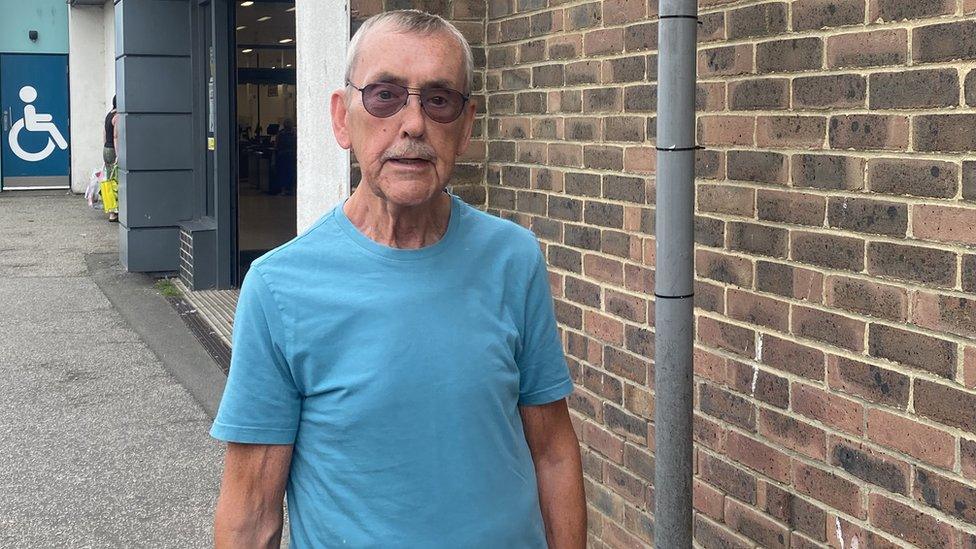
Terry Meades, 78, says he never expected to see so many household names disappear from the High Street
Rival discount chain B&M is expected to take on up to 51 of Wilko's stores in a £13m deal but it will rebrand them with its name.
The move will bring to an end the Wilko name on the High Street.
A further 28 stores will close later on Thursday, and for shopper Terry Meades the loss of Wilko represents another household name being consigned to history.
The 78-year-old says the change in the retail landscape has been unfathomable.
"It's a shame - in my lifetime I never thought we'd see Woolworths gone, British Home Stores gone - what's the world coming to?"
Mr Meades says more measures need to be put in place to salvage towns, while recognising that online shopping is here forever.
"If you have bought something on the internet and want to collect it leave the stores open and then you can collect it from the high street," he says.
"Save our High Streets - SOS!"

Follow East of England news on Facebook, external, Instagram, external and X, external. Got a story? Email eastofenglandnews@bbc.co.uk, external or WhatsApp us on 0800 169 1830
- Published12 September 2023
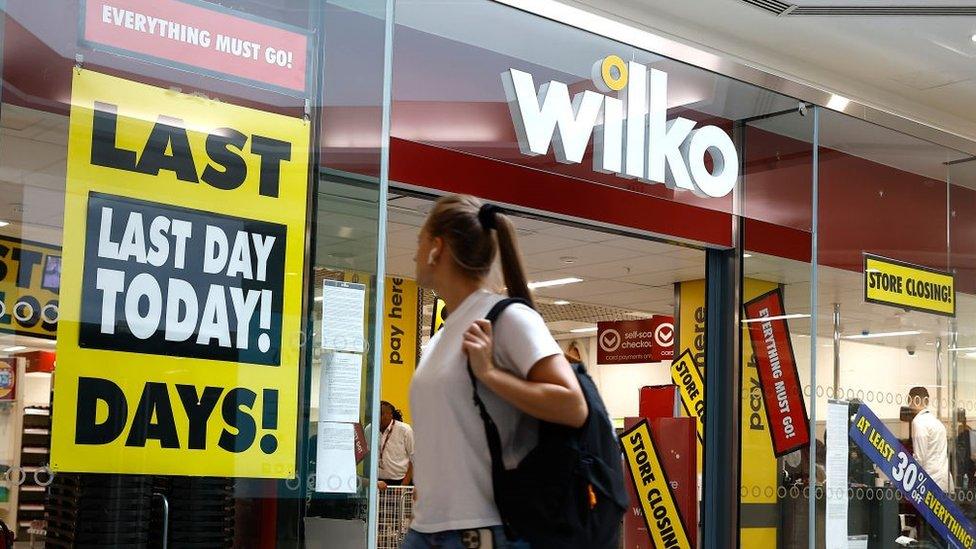
- Published12 September 2023

- Published11 September 2023
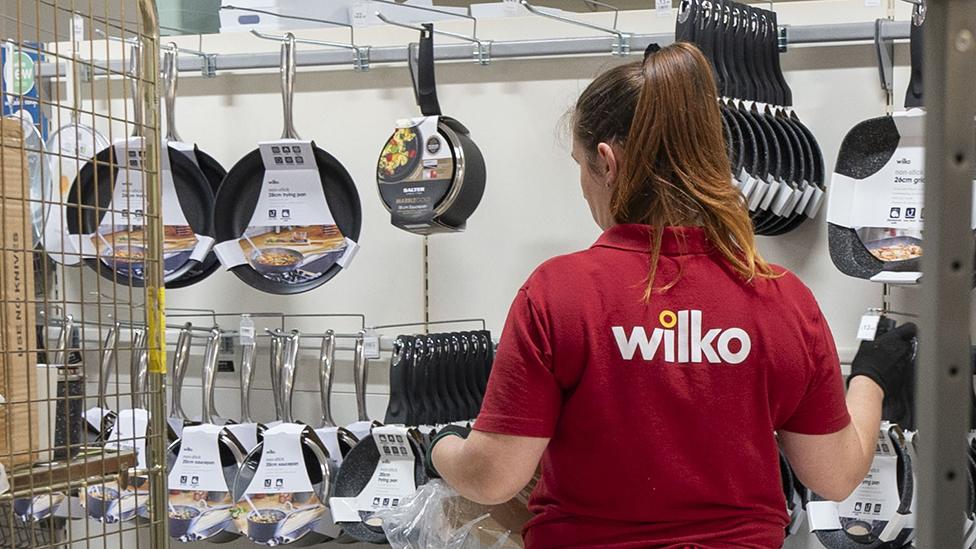
- Published12 September 2023
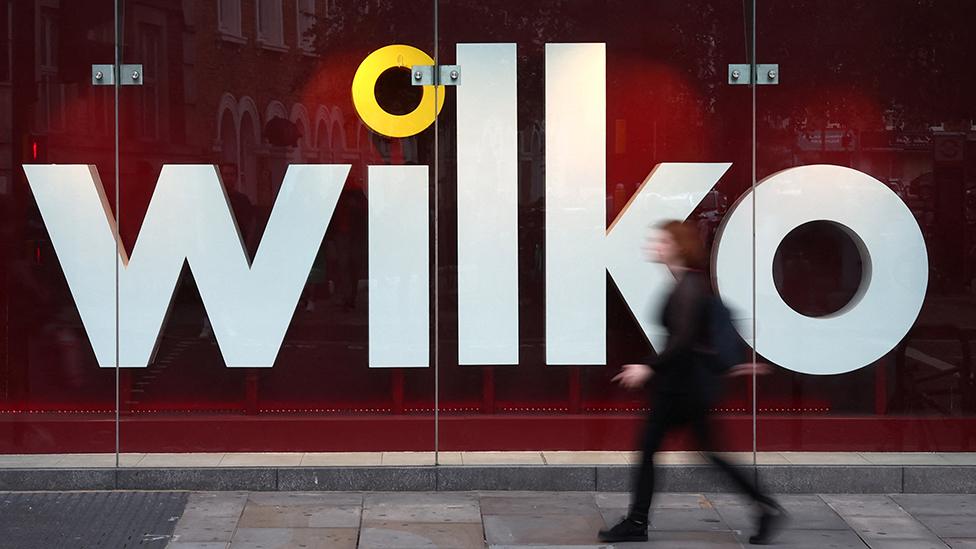
- Published7 September 2023
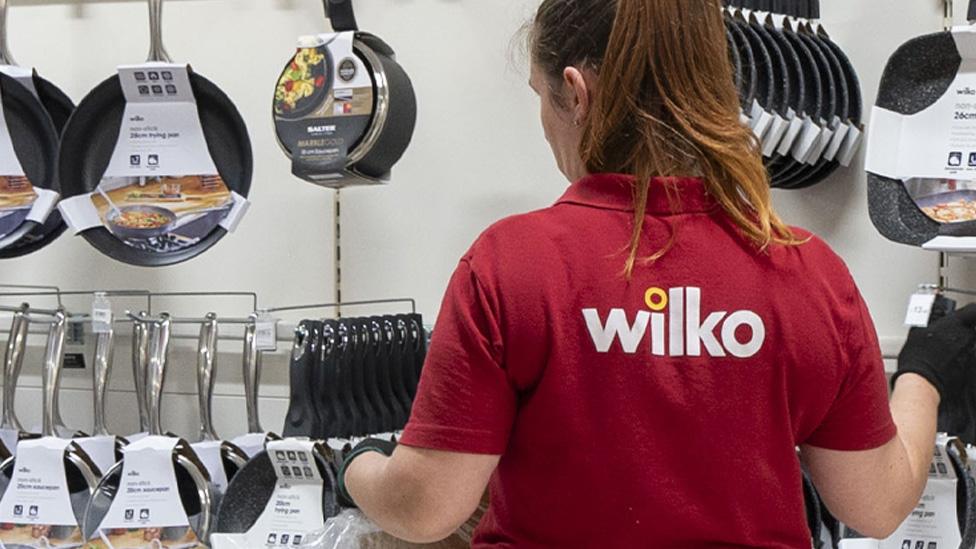
- Published5 September 2023
